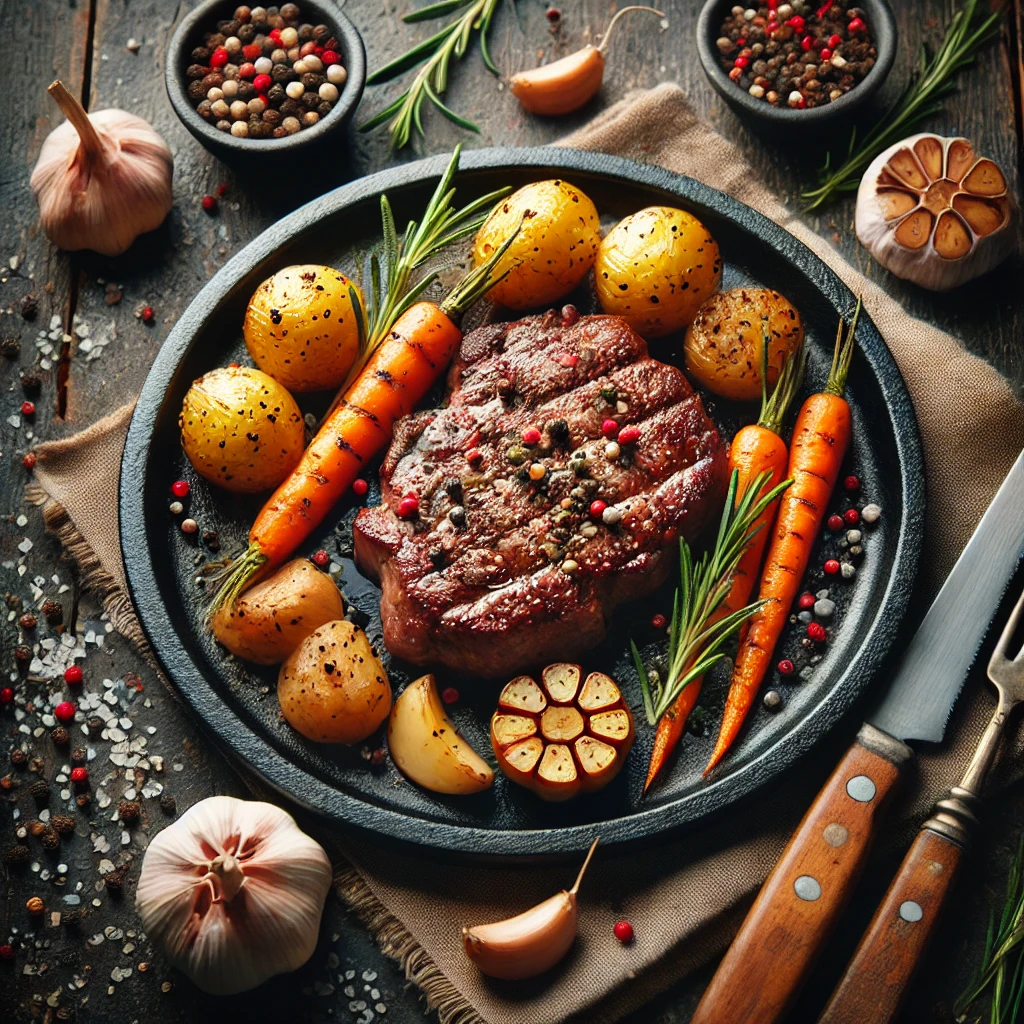Ask the Dietitian: How Much Protein Can Our Body Absorb?
Published October 28, 2024
7 Minute Read
Key Takeaways:
- The body can effectively absorb about 25–35 grams of protein per meal for muscle protein synthesis.
- The USDA recommended minimum daily protein intake to prevent muscle loss is 0.8 to 1 gram of protein per kilogram of body weight.
- For optimal health and weight management, aim for 1.2 to 2 grams of protein per kilogram of body weight per day, as recommended by top nutrition organizations.
- Distributing protein evenly across meals can improve muscle growth and satiety.
The Importance of Protein in Our Bodies
Protein is much more than just a macronutrient for building muscle. It’s a crucial element in every single cell in our body, supporting everything from tissue growth and repair to DNA synthesis, cellular transport, and immune defense. Without adequate protein, our bodies would struggle to function properly. For those aiming to lose weight, protein is particularly important because of its ability to enhance satiety and help manage hunger.
For a customized protein intake recommendation, MyFitnessPal offers in-app plans like the free 7-day Quick Start High-Protein Plan or the 28-day Ultimate High-Protein Plan to help reach protein goals efficiently.
How Much Protein Can We Absorb?
Protein requirements can vary based on age, body composition, gender, health status, and activity level. Research indicates there is a limit to how much protein our bodies can efficiently use at once for muscle growth and repair. This amount tends to be 25–35 grams per meal.
Is It Possible to Eat Too Much Protein?
Yes, excess protein isn’t always beneficial. Unlike carbohydrates, which are stored as glycogen in the liver and muscles, protein doesn’t have a dedicated storage system. When consumed in excess, the amino acids are broken down, and the nitrogenous part is excreted in urine. The remaining carbon can either be used for energy or stored as fat.
Determining Your Daily Protein Needs
- General Guidelines: The National Institutes of Health (NIH) recommend 0.8 to 1 gram of protein per kilogram of body weight to prevent muscle loss.
- For Active Individuals: The Academy of Nutrition and Dietetics suggests 1.2 to 2 grams of protein per kilogram of body weight for those who are active, trying to lose weight, or gain muscle.
- Protein Needs by Body Weight:
| Body Weight (lbs) | Body Weight (kg) | Lower End (g) | Upper End (g) |
|---|---|---|---|
| 125 | 57 | 68 | 114 |
| 150 | 68 | 82 | 136 |
| 175 | 79 | 95 | 158 |
| 200 | 91 | 109 | 182 |
| 225 | 102 | 122 | 204 |
| 250 | 113 | 136 | 226 |
Note: Protein needs can vary based on fitness goals, age, and individual metabolism.
The Benefits of Spreading Out Your Protein Intake
Research suggests that spreading protein intake evenly across meals is more effective for muscle growth and repair than consuming a large amount at one time. Consuming 25–35 grams of protein per meal can maximize muscle synthesis and promote better health outcomes.
Sample High-Protein Meals
- Breakfast Options:
- Greek yogurt with almond butter (23g protein)
- Protein-packed breakfast burritos (27g protein)
- Cottage cheese with blueberries (26g protein)
- Lunch Options:
- Greek salad with grilled chicken (31g protein)
- Egg and avocado lettuce wraps (25g protein)
- Dinner Options:
- Spicy chicken burger (35g protein)
- Shrimp burrito bowl (34g protein)
Does Nutrient Timing Matter?
Yes! Nutrient timing, especially for protein, can make a significant difference depending on your goals. Evenly distributing protein intake can help maintain steady amino acid availability for muscle repair and performance. For those focusing on weight loss, starting the day with around 35 grams of protein can help control appetite and reduce overall calorie intake.
For athletes, protein timing post-exercise is crucial. Consuming high-quality protein within three hours after working out maximizes muscle recovery and growth.
High-Quality Protein Sources to Include
For optimal health, prioritize whole-food protein sources, including lean meats like chicken, turkey, fish, eggs, nuts, legumes, and plant-based proteins like tofu. Aim to consume a variety of protein-rich foods to get all the essential amino acids.
Common Protein Myths Debunked
- Myth: All proteins are the same.
Fact: Different protein sources have varying amino acid profiles and nutrients. - Myth: More protein equals more muscle.
Fact: Adequate protein is important for muscle growth, but excess intake won’t speed up muscle gain. - Myth: Plant-based proteins are inferior.
Fact: Plant-based proteins can meet all essential amino acid requirements with proper combinations.
The Bottom Line
Protein is essential for everyone, not just athletes or bodybuilders. Focus on quality protein sources and distribute intake throughout the day to maximize health benefits.







